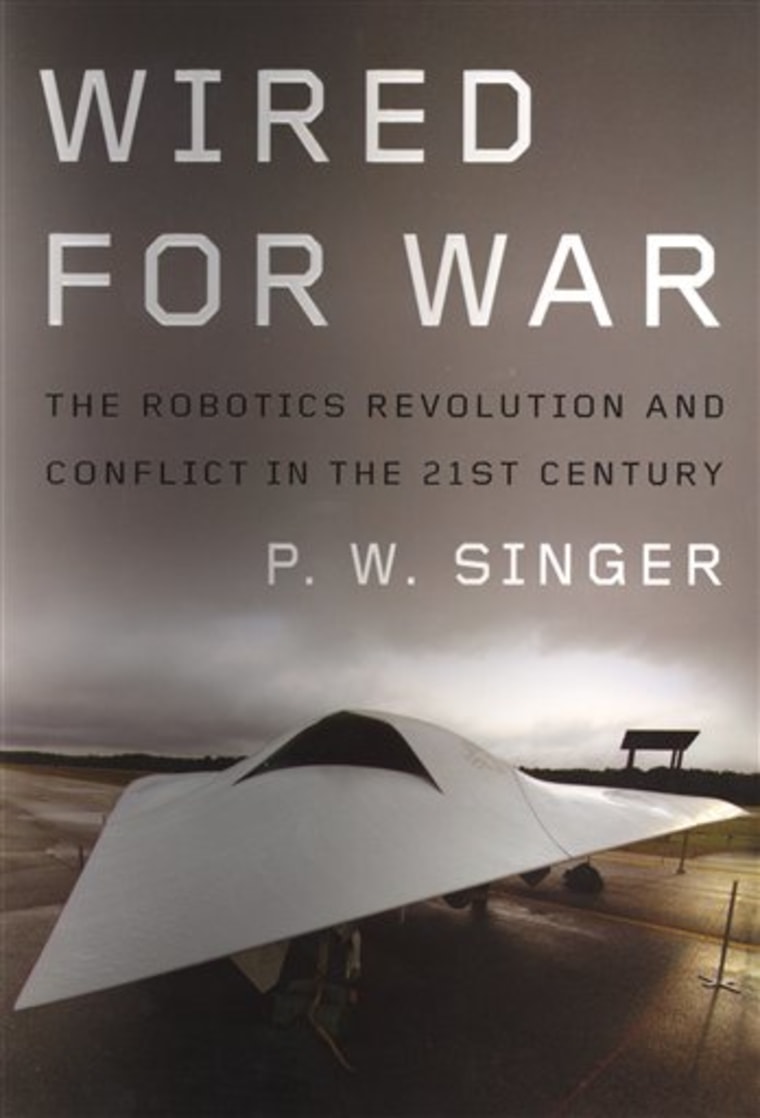In the 1921 play that invented the word "robot" — Czech writer Karel Capek's "Rossum's Universal Robots" — mechanical, highly intelligent slaves mount a revolt and kill all humans but one.
Ever since, science fiction has explored the idea of robots outsmarting, dominating and destroying the human race. Author P. W. Singer, at 33 a Senior Fellow at the highly serious Brookings Institution, can't resist the fascination of the topic, but he isn't writing fiction. He treats the possibility with appropriate seriousness in "Wired for War," a meticulous account of the latest military robots.
Two earlier books by him have explored two of the hottest issues in 21st century military developments. One was "Corporate Warriors: The Rise of the Privatized Military Industry," the reinvigorated ancient profession of mercenaries. The other deals with something relatively new: "Children at War" — the recruitment and enslavement of boys and girls in their teens and even younger.
Singer says some 40 countries are making military robots. The motive: reduced casualties. "When a robot dies, you don't have to write a letter to its mother," Singer quotes one unit commander as saying.
Military robots are already being built with greater endurance, firepower, precision and — for the moment, submissiveness — than human soldiers. The trend is to make them more autonomous, able to take decisions according to built-in commands, unmoved by fear, pity, revenge or other human emotion.
Whether they can or should be endowed with a system of ethics is controversial. How to tell a ragged soldier from a ragged civilian?
Scientists foresee the day when robots will develop what is called "strong AI" — high level artificial intelligence — and use it to reproduce themselves without human intervention. Singer quotes Vernon Vinge, mathematician, computer scientist and science fiction writer, as predicting more than 15 years ago: "Within the next 30 years, we will have the technological means to create superhuman intelligence. Shortly thereafter, the human era will be ended."
Rodney Brooks, chief technical officer at iRobot, is more optimistic. The firm takes its name from Isaac Asimov's "I, Robot," which posits "laws" that robots must never harm humans. The firm also makes the first mass-produced robotic vacuum cleaner. Brooks says there'll never be a robot takeover because by then, people will be part computer, part human.
Singer's exhaustively researched book, enlivened by examples from popular culture, ends with a hint that he's worried, too.
"We are creating something exciting and new, a technology that might just transform humans' role in their world, perhaps even create a new species," he concludes. "But this revolution is mainly driven by our inability to move beyond the conflicts that have shaped human history from the very start. Sadly, our machines may not be the only thing wired for war."
